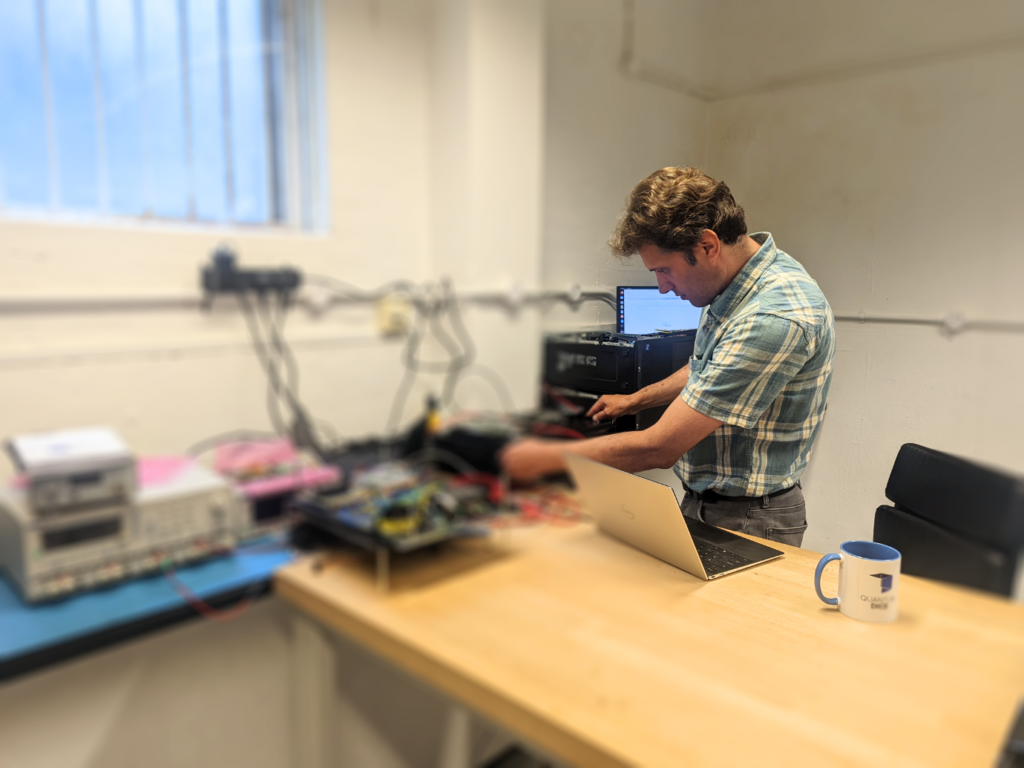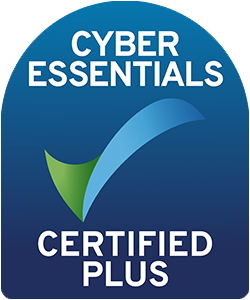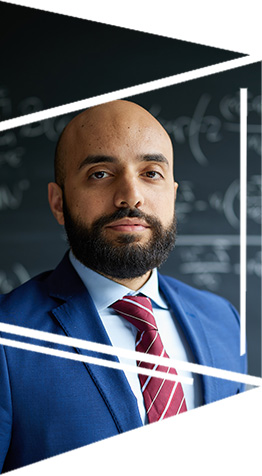Meet Hamid Tanhaei, who works as a Senior Electronics Engineer at Quantum Dice, and plays a crucial role in the development of the company’s quantum random number generator (QRNG) at the intersection of hardware and software.
Hear more about how his role at Quantum Dice has developed over the last year and a half, why he has a particular interest in Field Programmable Gate Array (FPGA) development, and how his father’s repair shop planted the seed for a career in electronics engineering.
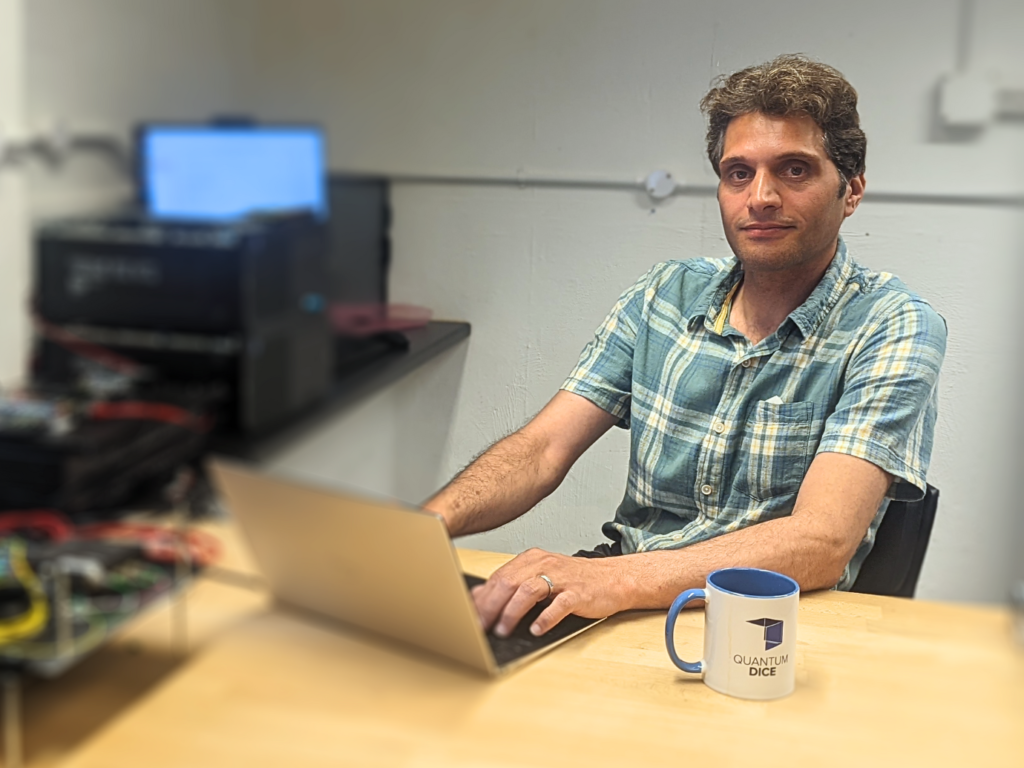
How did your early experiences pave the way for a career as an electronics engineer?
It goes back to when I was a teenager in Iran. My father used to have a repair shop for electronic devices like TVs and radios. During the summer I would work there, and I realised that I took an interest in electronics. So, when I finished school, I chose to major in electronics and pursued a bachelor’s degree at university in Zahedan, followed by a master’s degree in Tehran.
Tell us about your career before joining Quantum Dice.
I have been working for around 15 years now. I started off working as an electronics engineer straight after graduating, before becoming the Head of R&D at a private company in Iran. Most recently I was working at a start-up in Iran which employed around 15 people.
What appealed to you most about the Senior Electronics Engineer position at Quantum Dice?
I found that the role at Quantum Dice was highly related to my experience and my interests.
Firstly, the way the company is using quantum phenomena in a practical application is particularly interesting to me.
Secondly, I realised that there are many different fields involved in the development of QD’s QRNG technology and that this role required someone with multiple skills across firmware, hardware, and software design. I felt this fit well with my experience and where my interests lie.
Thirdly, the start-up nature of the company appealed to me too.
You mentioned the start-up nature of Quantum Dice appealed to you, how have you found working at a start-up so far?
The flexibility and level of freedom a start-up like Quantum Dice offers really matters to me personally. The working style is more suitable for a person like me who likes to work across different areas. Here I am not limited to just embedded development or firmware like you might be at a larger company – I can also work on software development too. I would say it offers more challenge, but I am happy with the challenge!
I realised that there are many different fields involved in the development of QD's QRNG technology and that this role required someone with multiple skills across firmware, hardware and software design."
What does a typical week look like as a Senior Electronics Engineer?
Each week could be different. Some weeks I might be working on multiple different tasks and others will be spent on just one more complex task. Typically, I will spend a lot of time working with our Software Engineers and Hardware Engineers to develop the interface between hardware and software. I am responsible for handling the area in the gap between software and hardware – firmware and FPGA development.
What element of your role at Quantum Dice do you enjoy the most and why?
Working on FPGA development is my favourite part of the job. Part of FPGA is related to software and part of it is related to hardware – and it is at this intersection between the two that I enjoy working the most because I come from a background in electronics, but I have experience in software development too.
Another reason I have an interest in FPGA development is that it enables us to implement very high-speed protocols.
Part of FPGA is related to software and part of it is related to hardware – and it is at this intersection between the two that I enjoy working the most..."
Take us back to your very first project at Quantum Dice – what were you working on?
My first project here was to develop the first version of our rackmount QRNG – the APEX device. I worked on the firmware development for the hardware. I also worked with our partner iQuila and their Virtual Extended Network (VEN) platform. Our APEX device provides the keys for their cryptographic algorithm. I had to ensure that our device integrated with iQuila’s platform which involved a lot of testing. I also needed to explain our protocol so they could develop their software to communicate with our device.
Finally, what advice would you give to someone who is interested in a similar career path?
I would say you should always be open to learn new things and you shouldn’t be afraid to make mistakes. Take new courses or study new things in our field to expand your knowledge. We should always prepare ourselves for many failures in a system we are working on because it will happen, and we will overcome them and learn from them.
We should always prepare ourselves for many failures in a system we are working on because it will happen, and we will overcome them and learn from them."
